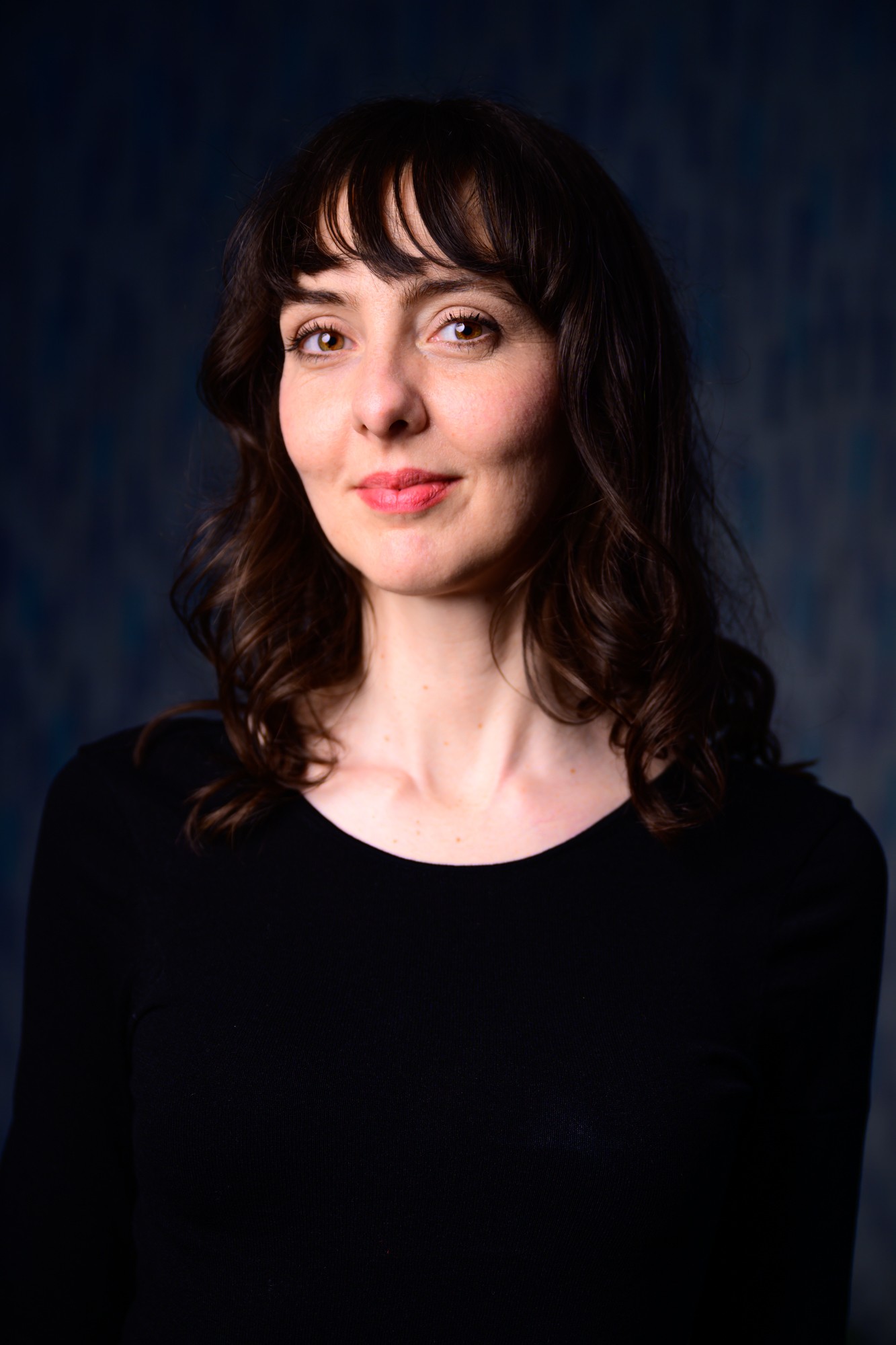Dr. Janina Müller
Forschungsinteressen: Musik/Sound und Medien, audiovisuelle Analyse, Musik und Cultural Studies, Musik des 20. und 21. Jahrhunderts, Intermedialität, Hörgeschichte

Historische Musikwissenschaft
E-Mail: janina.mueller.1@hu-berlin.de
https://orcid.org/0000-0003-1410-9843
Ich wurde mit einer Dissertation zu "Musik im klassischen Film noir" an der Humboldt-Universität zu Berlin 2019 promoviert. Nach meiner Tätigkeit als wissenschaftliche Mitarbeiterin am Lehrstuhl für Historische Musikwissenschaft (2015–2018) habe ich ein Walter-Benjamin-Stipendium der Deutschen Forschungsgemeinschaft sowie ein Junior Postdoctoral Fellowship der Research Foundation – Flanders (FWO) für mein Projekt "Radio Plays Politics: Musical Avant-garde and 1968 Radio Culture" erhalten, das ich im Rahmen einer Forschungsstelle am Department of Musicology der KU Leuven in Belgien realisiert habe (Oktober 2020–September 2023). Darüber hinaus war ich Gastwissenschaftlerin an der University of Southern California, Los Angeles (November 2011–Mai 2012) sowie am Music Department der University of Chicago (September–Dezember 2022).
I received my PhD from Humboldt University of Berlin in Historical Musicology in 2019 with a dissertation on film noir music. After having worked at the Chair for Historical Musicology from 2015 to 2018, I was awarded a Walter Benjamin Fellowship from the German Research Foundation and a Junior Postdoctoral Fellowship from the Research Foundation – Flanders (FWO) for my project "Radio Plays Politics: Musical Avant-garde and 1968 Radio Culture" for a funding period of three years (October 2020–September 2023) at KU Leuven in Belgium. As part of my doctoral degree, I conducted research at the University of Southern California, Los Angeles (funded by the German Academic Exchange Service in 2011/12). Furthermore, I was a Visiting Scholar at the Music Department of the University of Chicago for the Autumn quarter of 2022.
Forschung
Ich forsche genreübergreifend an der Schnittstelle zwischen Musik/Sound und Medien im 20. und 21. Jahrhundert. Mein aktuelles Forschungsprojekt "Radio Plays Politics: Musical Avant-garde and 1968 Radio Culture" beschäftigt sich mit experimentellen Radiokompositionen im Kontext der 68er-Bewegung. In meiner Dissertation zu "Musik im klassischen Film noir" (2019 publiziert) habe ich auf der Basis von Quellenstudien und Filmanalysen den eklektischen Stil der Filmmusik der goldenen Ära Hollywoods beleuchtet, der sich aus unterschiedlichen Einflussquellen, darunter Tin Pan Alley, Bühnenmelodram und musikalischer Moderne speist. Dadurch hinterfrage ich die geläufige Vorstellung von Hollywood als einer spät- bzw. neoromantisch verhafteten Praxis, die sich in erster Linie an Wagner orientiert habe. Meine Arbeit im Bereich der Filmmusik hat mich dazu angeregt, intermediale Bezüge zwischen Film, Oper und Literatur zu untersuchen.
Research
I explore the intersection of music/sound and media across genres in the twentieth- and twenty-first centuries. My current research project "Radio Plays Politics: Musical Avant-garde and 1968 Radio Culture" investigates experimental radio compositions in the context of the uprisings of 1968. In my dissertation on music in film noir (published as Musik im klassischen Film noir, Würzburg 2019), I highlighted the eclectic style of classical Hollywood scoring through in-depth analyses of films noir from the 1940s and 50s. I challenged the commonly held view that Hollywood composers drew mainly on late Romantic and neo-Romantic idioms, with Wagner serving as the key model, by bringing other significant influences to light, such as Tin Pan Alley, nineteenth-century stage melodrama, and early twentieth-century musical modernism. My work in film music subsequently led me to explore intermedial relations and intersections between cinema, opera, and literature.
Publikationen (Auswahl)
Artikel (peer-reviewed)
- "Performance as Transformation: The Laughing Songs of Death in Venice in Literature, Film, and Opera", in: Sound, Stage, Screen, vol. 1, Nr. 2 (2021), S. 69–100. (https://doi.org/10.54103/sss14054).
- "Der Komponist als Redner: Zur radiofonischen Stimmpolitik von Mauricio Kagels Hörspiel Der Tribun (1979)", in: Musiktheorie. Zeitschrift für Musikwissenschaft, Jg. 35, Nr. 2 (2020), S. 141–150.
- "Toward a Prehistory of Film Music: Hans Erdmann's Score for Nosferatu and the Idea of Modular Form“, in: Journal of Film Music, vol. 6, Nr. 1 (2013), S. 31–48 (Ko-Autor: Tobias Plebuch).
Buchkapitel
- "Chronotopische Klangräume. Zu den tönenden Architekturen des Unheimlichen in Roman Polańskis Apartment-Trilogie", in: Musik und das Unheimliche, hrsg. von Ivana Rentsch, Arne Stollberg und Christoph Hust, München: edition text + kritik, 2023, S. 325-346.
- "Das Opernhafte im Film – eine intermediale Spurensuche", in: Oper und Film. Geschichten einer Beziehung, hrsg. von Stephan Ahrens et al., München: edition text + kritik, 2019, S. 13–46.
- "Decomposing Heroism: Rolf Wilhelm's Music for Radetzkymarsch (1965)", in: Music, Memory, Nostalgia, and Trauma in European Cinema after the Second World War, hrsg. von Michael Baumgartner und Ewelina Boczkowska, New York und London: Routledge, 2019, S. 209–234 (Ko-Autor: Tobias Plebuch).
(https://doi.org/10.4324/9781315298450).
Monografie/Editionen
- Musik im klassischen Film noir, Würzburg: Königshausen & Neumann, 2019 (= Klangfiguren, Bd. 5).
- Bohuslav Martinů, Les Fresques de Piero della Francesca, H. 352; The Parables; H. 367, hrsg. von Janina Müller und Arne Stollberg, Kassel u. a.: Bärenreiter, 2023 (The Bohuslav Martinů Complete Edition II/2/7).
- Felix Mendelssohn Bartholdy, Sämtliche Briefe, Band 11: Juli 1845 bis Januar 1847, hrsg. und kommentiert von Susanne Tomkoviç, Christoph Koop und Janina Müller, Kassel u. a.: Bärenreiter, 2016.
